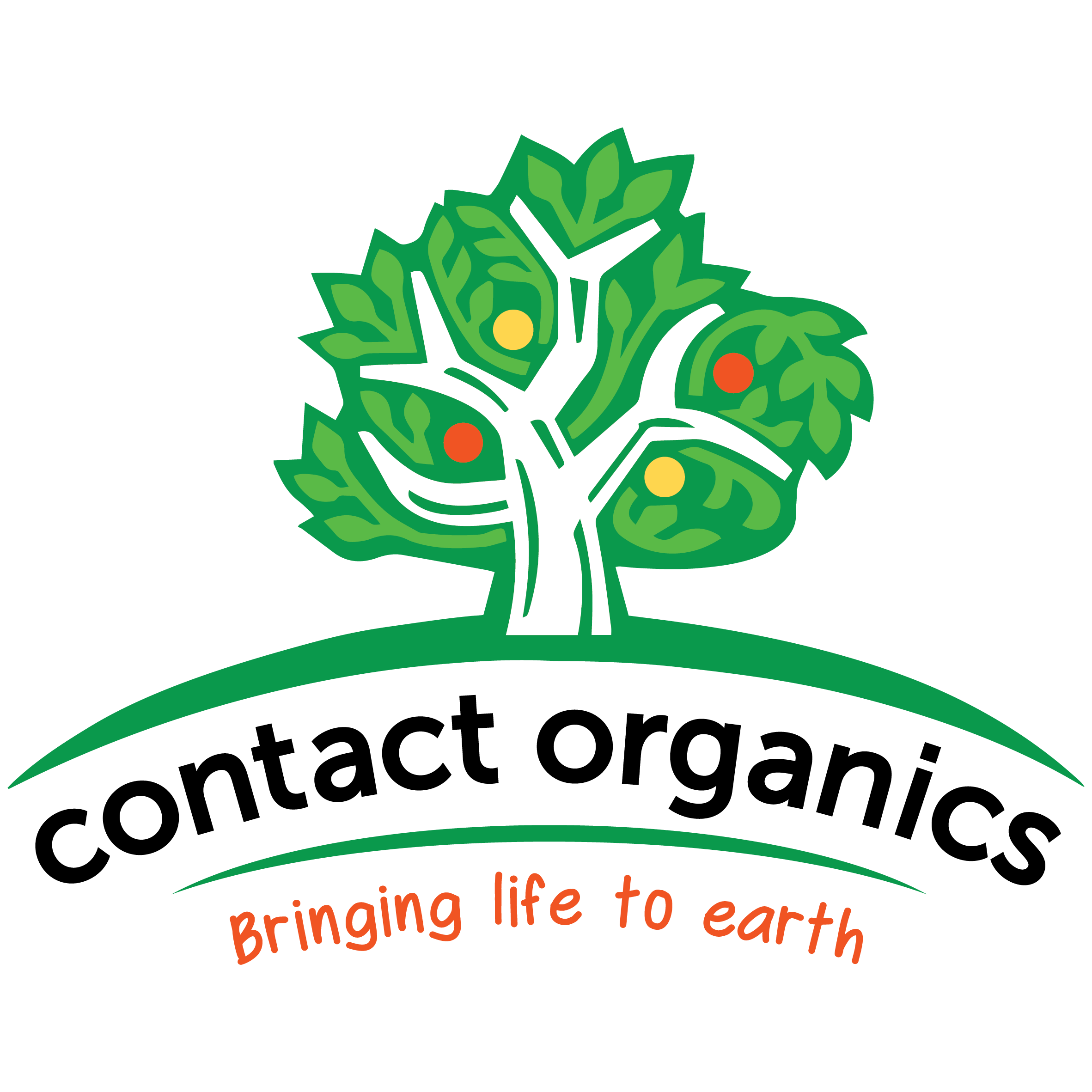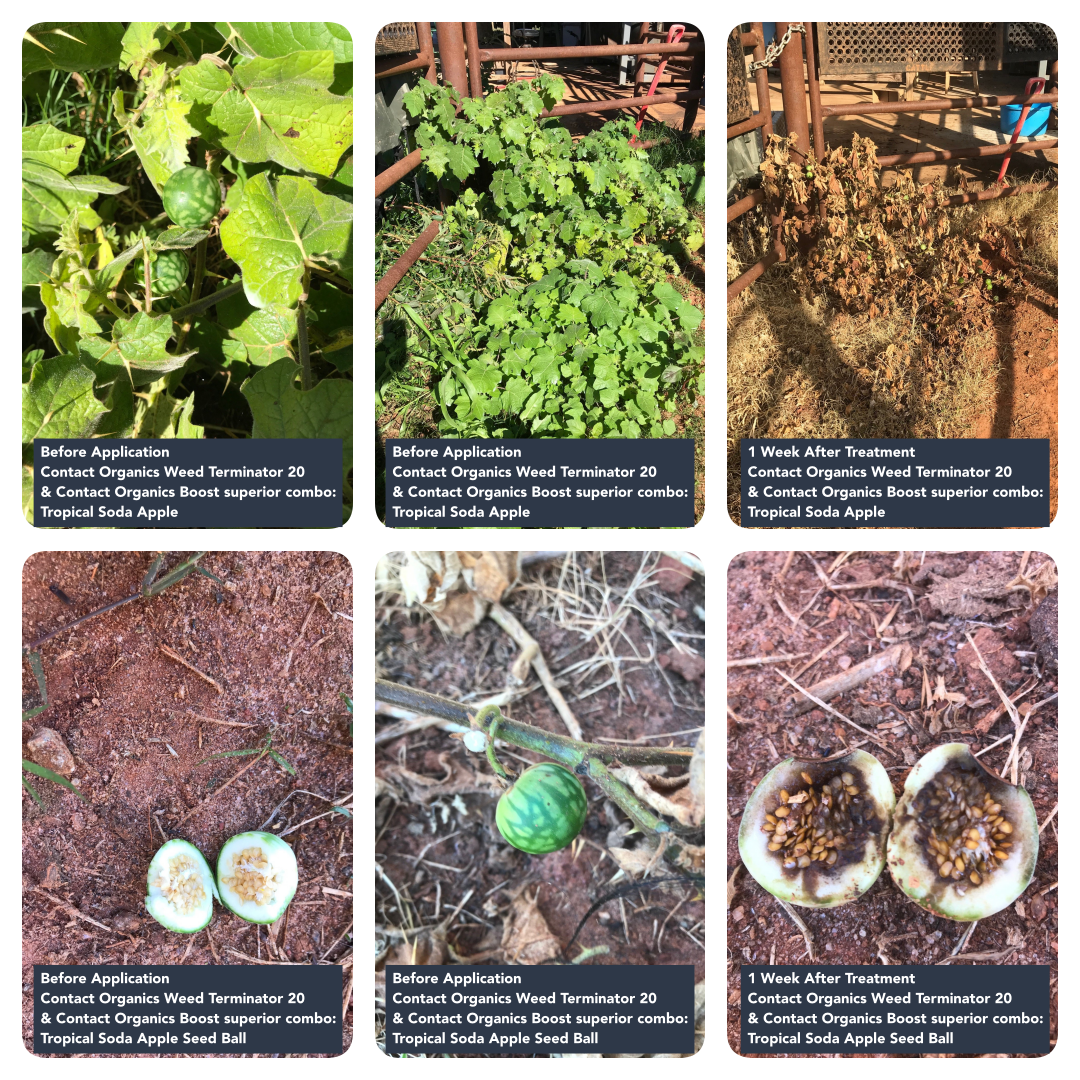Contact Organics aims to restore balance in the environment by creating products that focus on improving soil microbiology while controlling unwanted plant growth.
An estimated 2,000 invasive and noxious weed species are already established in the United States (USDA Forest Service). Tropical soda apple (TSA), Solanum viarum Dunal (Solanaceae) native weed of Southeastern Brazil, Northeastern Argentina, Paraguay, and Uruguay currently invading Florida and other Southern USA states, is causing damages in the millions of dollars, impacting grasslands and natural ecosystems. TSA was first reported in the USA in 1988, in Glades County, Florida (Coile 1993, Mullahey and Colvin 1993). With the raping spread rate, TSA is causing great damage and is a major concern for Florida and other Southern States. Statewide economic impacts were estimated to range from $6.5 million to $16 million annually, and this is only considering the impact to beef cattle producers, yet there was evidence that TSA was causing ecological damage in natural areas by displacing native plants and disrupting ecological integrity (Medal, J.C. & Overholt, William & Charudattan, Raghavan & Mullahey, & Gaskalla, & Diaz, Rodrigo & Cuda,. (2012). Tropical Soda Apple Management Plan 2012. University of Florida-IFAS, 1st edition. Gainesville, Florida. 86p.). The plant invades hammocks, ditch banks, and roadsides, where it out-competes native plants (Langeland & Burks 1998).
Tropical soda apple, as many other invasive weeds, can successfully be controlled using the weed control alternative – Contact Organics Weed Terminator 20 & Contact Organics Boost superior combo.
Mervin Martin from Kraut Creek & Howard Vlieger CO USA MD met with Will Harris of White Oak Pastures in Bluffton Georgia, to discuss assisting him in the management a very invasive weed species in their operation, topical soda apple. White Oak Pastures is a widely known regenerative farming operation where they do not use any toxic chemicals in their operations. A follow up after the initial application of Weed Terminator 20 (WT 20) plus Boost proved successful in killing the very mature plants. Upon inspection of the tropical apple seed balls on the treated plants, 7 days after spraying, we noticed a deformity that seemed to suggest there might be issues with the germination of the seeds from plants that were sprayed with WT 20 & Boost. We informed Dr. Robert Kremer, USDA ARS retired, of our findings. Dr. Kremer is familiar with the Contact Organics products, as we have been working with him on research projects relative to WT 20 & Boost for several years. Dr. Kremer conducted replicated analysis germination trials on treated (sprayed with WT 20 & Boost) and untreated Tropical Soda Apple (TSA) weed seeds. The treated plants were sprayed at the mid seed fill stage indicated in this picture. Again, TSA is an invasive weed species that is causing significant issues for range land producers and other crop producers in the SE US.
Some of the TSA plants received a 2nd spray to cover parts of the plant that were missed in the initial application. It is difficult to get complete coverage when they are in patches but a touchup spray a day or 2 later finishes the job. These are also part of the seed germination analysis study. The University of Missouri also conducted a study on tropical soda apple management, please click here, to see Seed Viability Assay.
The Weed Terminator and Boost combo has once again proven successful in the successful treatment of invasive and glyphosate resistant weeds/grasses/plants.

 Australia
Australia New Zealand
New Zealand 日本語
日本語

0 comments
Be the first to comment below...